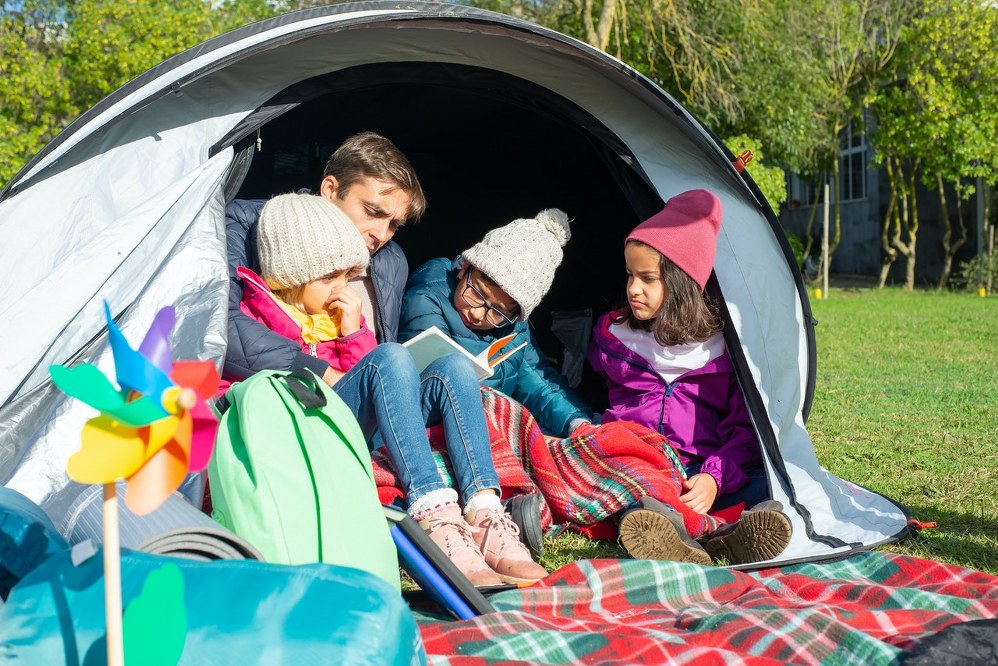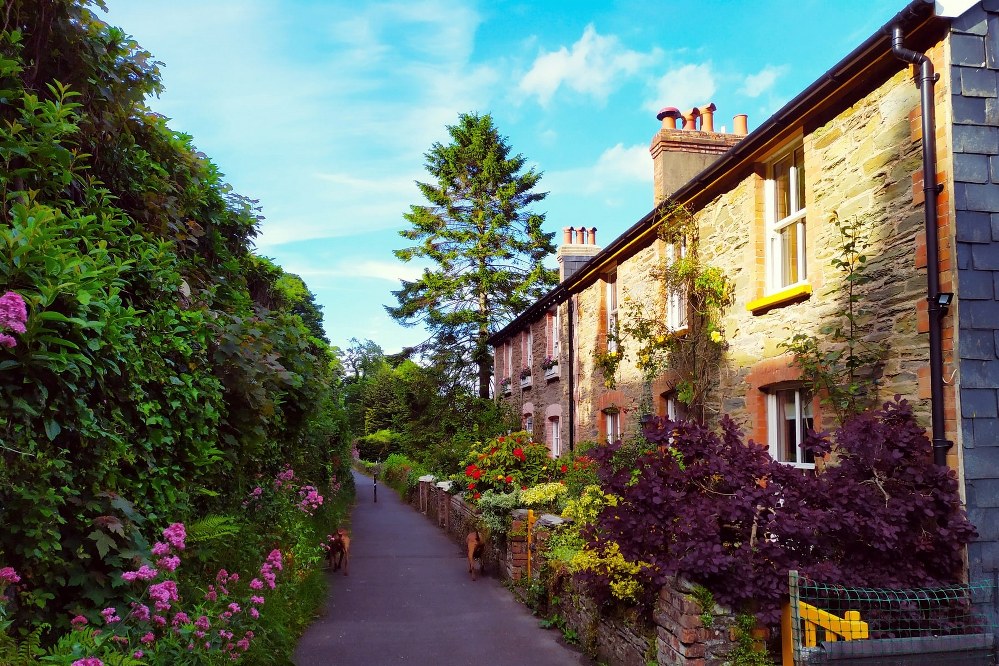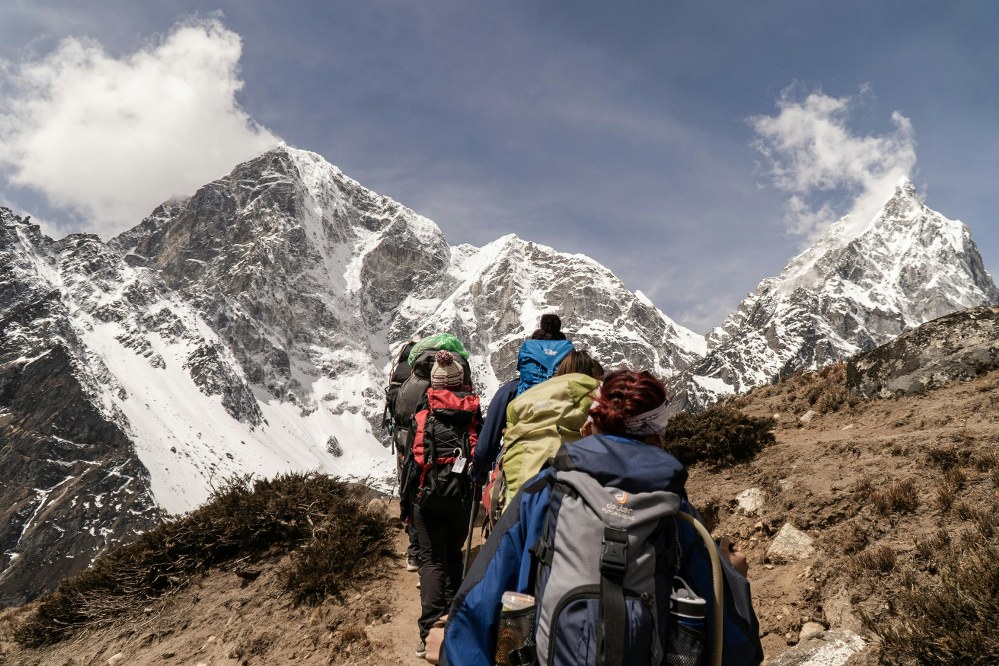Top Tips for first time campers:
What a difference a year (or two) makes. COVID-19 seems to have turned our entire country into re-discovering family camping holidays. An exciting childhood memory for many, camping has truly come back into fashion due to the uncertainty surrounding international travel that followed.
The big difference to family camping back in the day is the sheer choice families now have. Depending on your budget and the level of comfort you seek, your camping holidays with kids can range from wild camping and pitching up at a campsite to glamping, campervan holidays, and caravan touring.
Whether you are a single parent or a couple, if you haven’t been on a family camping trip with kids and pets before, read on to find out how to cut the stress out of camping and make it a memorable and relaxing experience for everyone:
1. Pick the right campsite
Camping in the wild might sound romantic, but it’s illegal in England and Wales, so you would need to head up to Scotland where you can pitch up almost anywhere. If you’re new to camping or have young children, it might be wise to try out some campervan holidays at a developed campsite first. To avoid travel-weary family members, pick one that’s reasonably close to home, especially if it’s your first family camping trip. A place with natural attractions such as lakes, rivers, hills, or the beach is an ideal choice. Or, if you’re a city dweller, even the edge of a wooded area can be special.
Decide how much you want to “rough it” and pick a site with amenities you can’t live without. You don’t want go overboard with the niceties, or you’ll diminish the camping experience: Some campsites offer on-site restaurants, swimming pools and evening entertainment, so your holiday will feel more like a club break than family camping in the wild. Whilst this may be a nice break, it’s a far cry from the camping trips of your childhood, when you were able to enjoy nature and spent evenings roasting sausages and spuds over a campfire.
A great advantage of camping is, of course, that you can usually take the dog along. Do check that your campsite allows pets and is advertised as pet friendly.
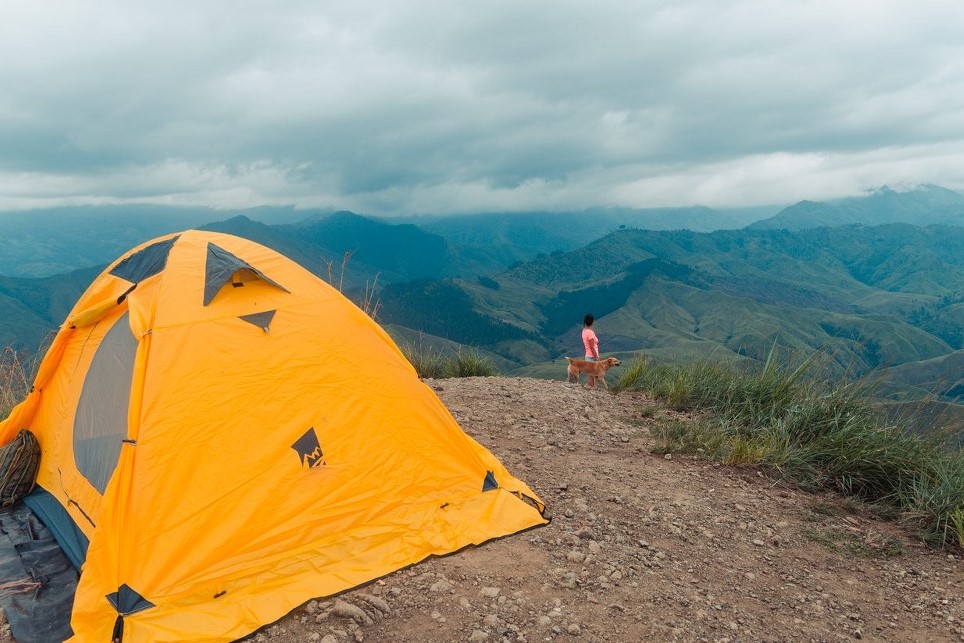
2. Invest in good quality camping gear
These days, the outdoor industry offers a huge array of gear to make family camping more comfortable. When tent camping, get the largest you can afford that will fit the family. Good quality tents and sleeping bags will really pay off in the long run. For older teens and tweens, consider a larger tent with a separate room or a small tent just for them. This way, older kids can enjoy a little independence and you can enjoy some peace and quiet. Products like camping stoves and camping fridges are essential if you want to prepare your own meals and prevent food from going off. For the evenings, it’s best to invest in camping torches for kids as a safe and convenient way to have instant light for many hours.
If you are planning to tour the country in a campervan or caravan, having a toilet in your RV is a lifesaver with children while on the road. There are also portable options and composting toilets, which can be placed outside the RV or used for tent camping and on campsites without any private sanitary facilities. Even if there are good sanitary facilities, it is always nice to have your own, especially if you are worried about hygiene – not least during the current pandemic.
3. Involve the kids in the planning
Even young children can get in on the planning. Use maps, pictures, brochures, and websites to get them hyped about the trip. Let them help choose the campsite and activities they want to try. Make a list with them regarding the things they want to do and places they’d like to see along the way, so that you can make a rough itinerary and pre-book tickets where necessary. Children can also help make the shopping list for your family camping holiday; hence, bring them along when shopping for supplies or camping gear. Allow older children to have their own backpack to pack some items they want to bring.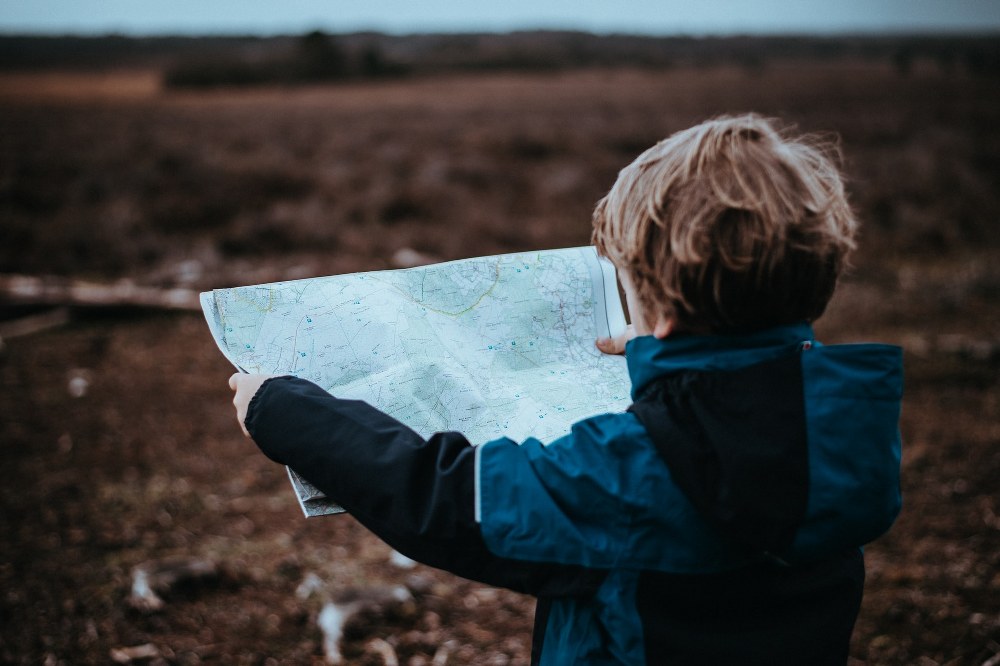
4. Pack for kids
Letting kids pack their own camping backpack is great, but you will ultimately need to make sure they have the right essentials. Provide them with a list of must-haves, including extra clothing that can be layered, comfortable walking shoes, raincoats, sun hats, sunscreen, a washbag, their favourite pillow or soft toy and travel toys that take up little space but provide lots of entertainment during the journey and in the evenings. Older kids can even pack their own first aid supplies, sunscreen, and insect repellent. Pack these items in your own bag for younger kids. Don’t forget to have an extra supply on hand.
For added peace of mind, especially in unfamiliar areas, consider giving your child a smartphone with child safety features. These phones often include GPS location tracking, allowing you to monitor your child’s whereabouts and stay connected throughout the trip. It’s a helpful tool for ensuring safety without sacrificing their sense of independence.
5. Pack for pets
If you are taking your pet along on holiday, make sure it has a proper harness or collar with an ID tag, especially if it’s not microchipped. Keep in mind that most campsites will require pets to be on a leash at all times. This is for their safety as well as the comfort of other campers. For those times when you want to go somewhere or participate in an activity without your pet, a dog crate will keep them safe and secure. Make sure it’s sturdy and impossible for them to break out of. To make sure they are used to the crate, start using it around the house, for example, at night-time or for car journeys. That way, your dog will associate the crate with a safe place to sleep and rest and won’t panic when suddenly locked in a confined space. A waterproof dog bed cover that absorbs moisture will also come in handy and ensure your pet is comfortable at night.
To make sure your pet is up to date on things like flea meds and vaccinations, a trip to the vet is always a good idea before heading off. Of course, if you like to spoil your furry friend, the outdoor industry has plenty of cool things for them, such as a portable dog tent, dog beds, paw-protecting booties, and collapsable food and water bowls for travelling. If it’s your first time camping, you might want to download a camping holiday packing list from someone more experienced to ensure you haven’t forgotten any essentials.
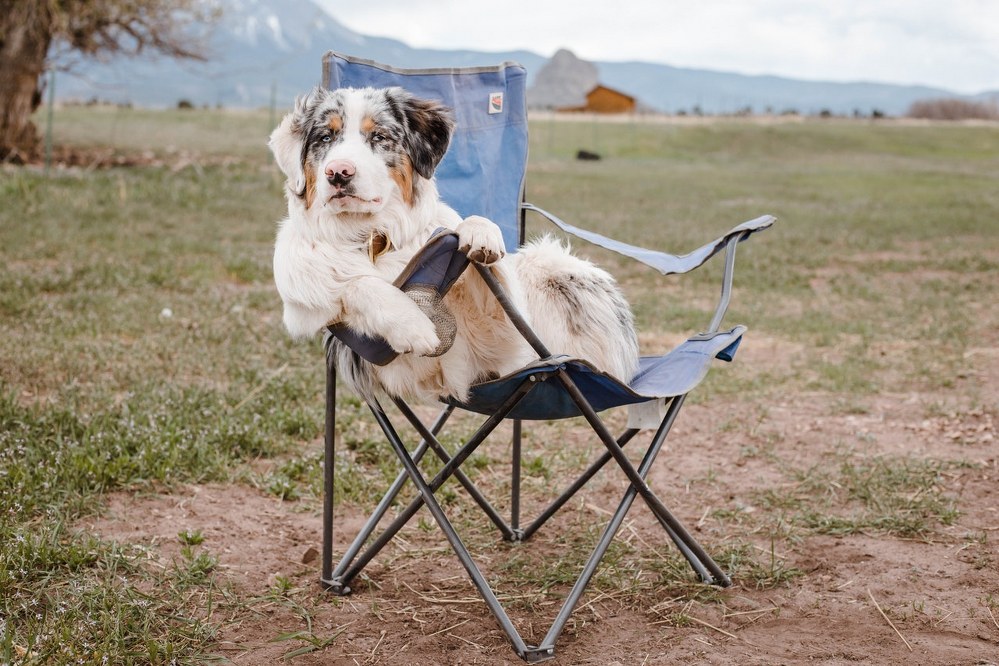
6. Do practice runs at home
Practice makes perfect, and that applies to everything, including camping. Do a few practice runs by setting up a tent in your back garden. This will give the whole family a chance to practise setting up a tent, trying out bedding, and many other tasks. You don’t want to end up at your campsite just to realise that the brand-new tent you purchased is missing the manual or an essential item required for setting it up. It’s also a great way for newbie campers and kids to get used to sleeping outdoors before being away from home. If possible, make a campfire and let the kids roast hotdogs and marshmallows. Not only will they get a good taste for family camping, but it will also help get them excited about the trip.
Whilst you may want to choose a nice day for your first trial run, do check that your tent can withstand wind and rain and that you are also able to set it up quickly in poor weather. Things like cable ties, duct tape, a tent repair kit, spare batteries, and pen knives can come in useful for all sorts of emergencies, including a hole in your tent wall or floor or a broken tent pole.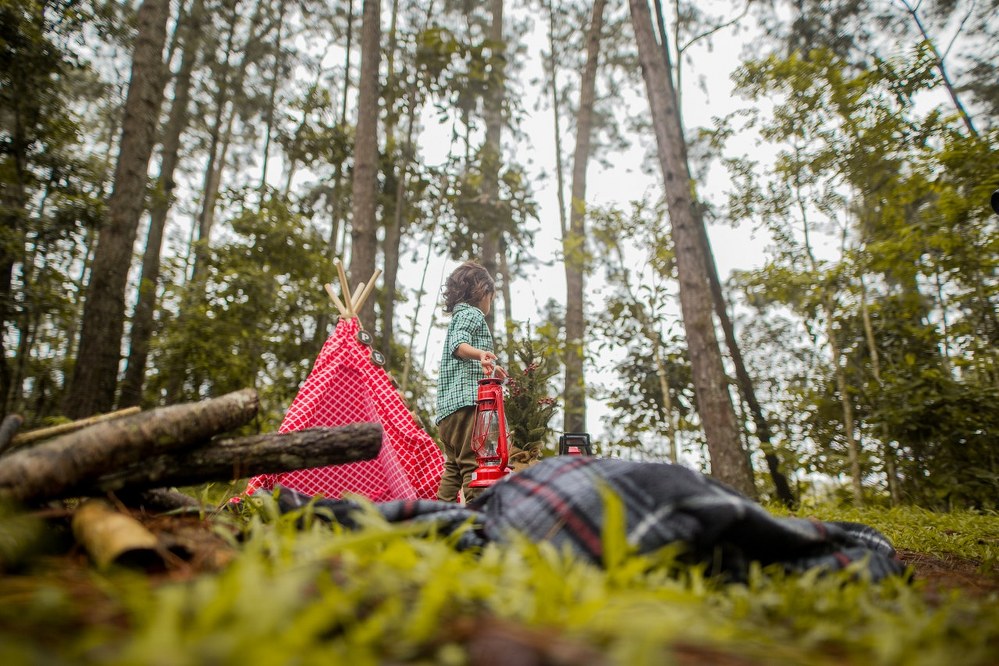
Come autumn and the best of the summer weather may be behind us, but the camping season is far from over. In fact, now is a great time to buy gear and tents more cheaply, or, in fact, second-hand for your next family camping trip. Camping isn’t for everyone, so you might find that some families are happy to pass on their nearly new gear for an apple and an egg after the summer holidays. This may be your chance to save some money on your next family road trip.
Have you got any tips to share for first time campers? Or anecdotes from your first camping holiday as a single parent? We would love to hear them!
If you enjoyed reading our post, why not check out our holidays for single parents in the UK and abroad, or browse our Travel Blog for Single Parents and Solo Travellers ?

